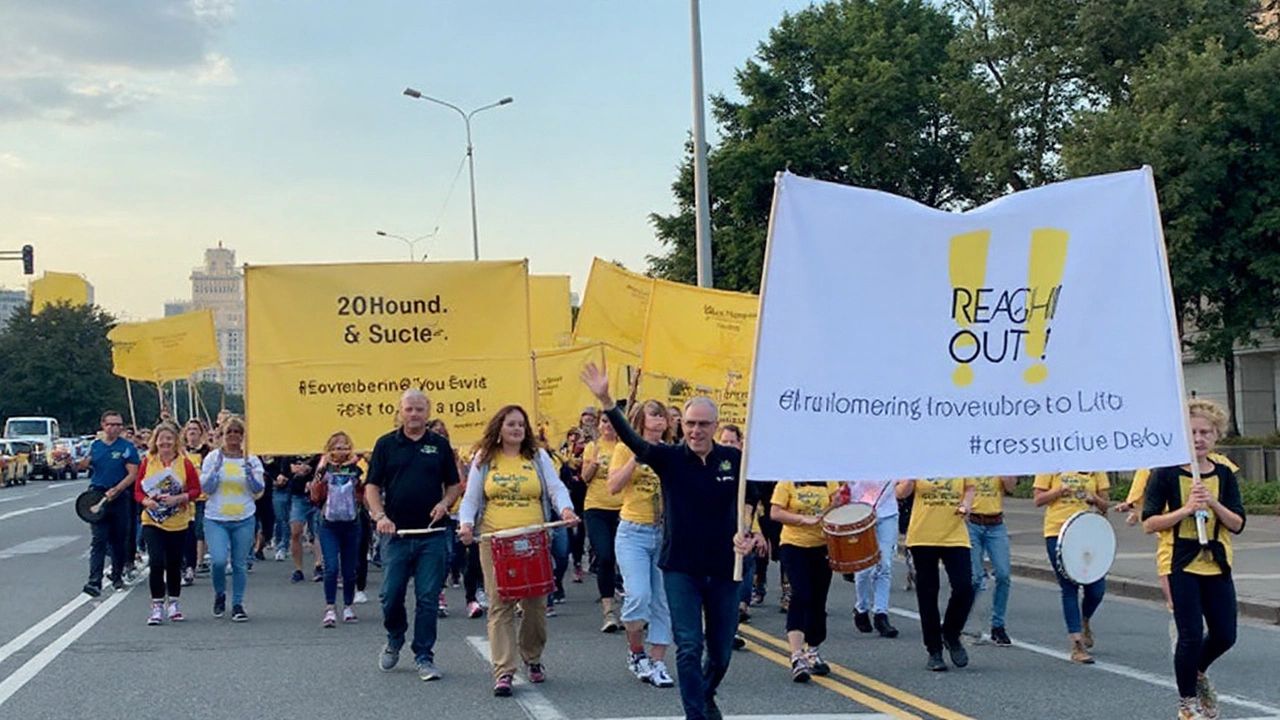World Suicide Prevention Day and the Baseball Community
When we talk about World Suicide Prevention Day, an annual global effort to raise awareness about suicide and promote mental‑health resources. It’s also known as Suicide Awareness Day, a day that calls on anyone—players, coaches, fans—to break the silence. In the same breath, mental health, the emotional and psychological well‑being of an individual becomes the central focus, especially for those involved in baseball, the sport that unites millions across the world. This connection matters because the pressure of competition, travel, and public expectations can amplify stress, making the day’s message especially relevant for the baseball community.
Why athletes need a mental‑health boost
Professional athletes often face intense scrutiny. Their performance statistics are public, their injuries are headline news, and their personal lives are dissected on social media. This environment creates a unique mental‑health landscape where stigma can keep players from seeking help. Studies from sports psychologists show that athletes who engage in open conversations about feelings are less likely to experience severe anxiety or depression. The day’s campaigns highlight that acknowledging mental‑health challenges is a sign of strength, not weakness, and that seeking support can improve on‑field performance.
Coaches and staff play a pivotal role, too. They are the first line of observation, often noticing changes in a player’s mood or work ethic. By learning how to spot warning signs—such as sudden withdrawal, changes in appetite, or declining focus—coaches can intervene early. The World Suicide Prevention Day message encourages teams to adopt simple check‑in routines, perhaps a weekly mental‑health huddle, that creates a safe space for players to voice concerns. Such practices foster a culture where wellness is as important as batting averages.
Fans, too, are part of the support network. The baseball stadium experience is more than just a game; it’s a community gathering where shared emotions run high. When a beloved player shares a personal story about coping with anxiety, it resonates with fans who may be facing similar battles. The day’s outreach often includes fan‑focused campaigns, like wristband drives or social‑media challenges, that raise funds for crisis hotlines and provide educational material. By participating, fans reinforce the message that mental‑health care is everyone's responsibility.
Resources available on World Suicide Prevention Day are extensive. National hotlines, counseling apps, and local support groups are highlighted in partnership with sports organizations. For baseball players, many leagues now offer confidential mental‑health services, including tele‑therapy sessions that fit into a hectic travel schedule. The day also promotes peer‑support networks, where teammates can form buddy systems, ensuring nobody slides into isolation during long road trips.
Another key element is coping strategies, practical techniques like mindfulness, breathing exercises, and structured routines designed to reduce stress. Simple habits—such as a five‑minute pre‑game meditation or a post‑game gratitude journal—have shown measurable benefits in reducing cortisol levels. When integrated into daily training, these strategies become part of an athlete’s toolkit, helping them manage both victories and setbacks.
Finally, the legacy of World Suicide Prevention Day extends beyond a single date. It sparks ongoing conversations that ripple through locker rooms, front offices, and fan clubs throughout the season. By embedding mental‑health awareness into the fabric of baseball culture, the sport can lead the way in showing how athletic excellence and emotional well‑being go hand in hand. Below, you’ll find a curated list of posts that dive deeper into these topics—from player stories to practical guides—giving you a comprehensive look at how the baseball world is responding to this critical day.
- Quinton Stryker
- 0
World Suicide Prevention Day in Salford: A vigil, a conference, and a city determined to save lives
Salford marked World Suicide Prevention Day with a candlelit vigil, a remembrance procession, and a full-day conference focused on practical support for young people. START’s Reach Out; Start to End Suicide led the evening event, while Jak’s World ran training and talks at Salford Lads Club. Greater Manchester hosted a virtual session on standards and media guidelines during its Month of Hope.
Read more